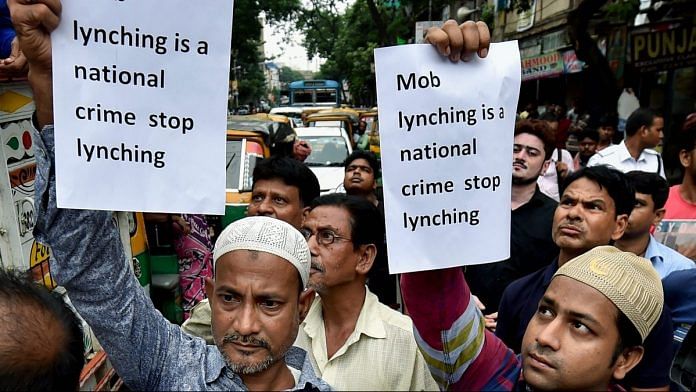New Delhi: Justice has for long evaded the family of cattle trader Mohammad Qasim, who was lynched by cow vigilantes in Uttar Pradesh’s Hapur district in 2018. The perpetrators had assaulted Qasim, 45, for over an hour, pierced his body with screwdrivers, and scraped his skin with sickles.
Eleven people, including two juveniles, were accused of the crime in which Samaydeen, 65, barely managed to escape the gruesome fate.
Three rounds of final arguments were heard by the sessions court in Hapur over the years, but thrice the judge was changed right before the judgement was to be pronounced in the court. Finally, after hearing the arguments for the fourth time again, the court heard the rebuttal of prosecution’s arguments Tuesday and reserved the judgement.
Previously, an application was filed before the Supreme Court in November 2022. Earlier last year, the matter was listed before the apex court, but it had to be adjourned as one of the counsels wasn’t present. The top court Monday disposed of the petition and issued directions that the matter be expedited.
Fourth round of arguments
For the fourth time, the final arguments were heard by the sessions court in February and rebuttal arguments were heard Tuesday.
The cycle began after final arguments were first heard on 23 August 2021, and the transfer orders were notified a day later on 24 August. Then again it was heard by the new sessions judge on 21 September. The defence counsels then completed their arguments on 22 November. However, the transfer orders came in on 26 November.
The same process was repeated for the third time and the prosecution’s arguments concluded on 19 May 2022. After the defence’s arguments were heard for five months and concluded on 13 October, the judge was again transferred on 21 October.
“Justice delayed is justice denied, has become a reality for the petitioner, who are victims of the heinous crime of mob lynching and their wait for justice continues. That each delay in conclusion of trial comes with a wave of celebration for the accused who are all out on bail, and condemns the petitioner and victims to prolonged dejection,” the petition filed in the top court said.
Also Read: 60-yr-old Imrana held for ‘dealing bombs’ in Muzaffarnagar, family refutes cops’ 2013 riots theory
Six months for trial completion
This, however, isn’t the first time that the petitioners had to knock on the doors of the apex court.
The local police had initially filed an FIR that suggested a different picture; the crime was identified as stemming from an incident of road rage.
The FIR stated that while Qasim and Samaydeen were on their way to the village, they were hit by a motorcycle and later beaten up by a mob. This was in contradiction to the daily diary proceedings noted before the FIR was lodged. The diary entry said that the Muslim men were surrounded by a group of people and didn’t mention road rage or that the duo were hit by a bike.
Only after the top court issued directions that the statements of witnesses and petitioner, including Samaydeen’s, were recorded under Section 164 CrPC (in front of the magistrate) and police protection was provided to them. In the order dated 13 August 2018, the Supreme Court asked the Inspector General of Police (Meerut range) to submit a report on the case.
In September 2018, the top court, recognising that incident as that of mob lynching, directed that the probe be carried out in accordance with the guidelines issued by it in the Tehseen S. Poonawalla vs Union of India case and that investigation be carried directly under the IGP. Following these orders, the charge sheet was finally filed on 4 November 2018.
Under the Tehseen S. Poonawala vs Union of India case, passed on 17 July 2018, the top court issued guidelines that the trial in cases of mob lynching be concluded within six months from the date of taking cognisance.
“The cases of lynching and mob violence shall be specifically tried by designated court or Fast Track Courts earmarked for that purpose in each district. Such courts shall hold trial of the case on a day to day basis. The trial shall preferably be concluded within six months from the date of taking cognizance,” the top court had said.
(Edited by Tony Rai)
Also Read: Out on bail, rape accused shoots victim in Rajasthan. Cop suspended for inaction against threats



